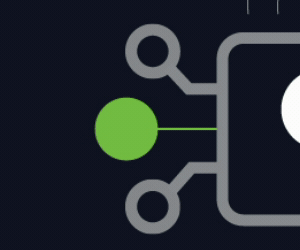2. How Can an MSSP Achieve Reliable Security Protections?
For consistency in service quality, it is essential that processes are repeatable. Maintaining disciplined documentation is crucial for enhancing reliability. However, not all managed security services are automated. Therefore, an MSSP’s manpower must be reliable.
Like any other organization, MSSPs contend with employee turnover and time off. If a school is working with an MSSP because of a shortage of human resources and bandwidth, the last thing they want is an MSSP that fails to provide the necessary number of skilled experts.
When interviewing an MSSP, IT leaders should inquire about the provider’s process for ensuring it can meet resource requirements. As a best practice, CDW, when hired as an MSSP, always has a contingency plan to provide the right number of trained experts, all of whom are well-versed in schools’ managed security needs.
DISCOVER: States step up to help schools fight cybercriminals.
3. How Can an MSSP Reduce Risk for Our K–12 School?
When evaluating how an MSSP minimizes risk for a K–12 school, it’s important to take multiple factors into consideration:
- Security: It’s important to ensure the MSSP can fully meet the school’s security requirements and consistently evaluate and fortify its weaknesses. Consider an MSSP’s capabilities beyond the school’s current security needs to ensure it can respond quickly in the evolving security landscape. K–12 data is a valuable asset, so it’s vital to know the MSSP’s experience with security breaches and its preparedness to respond to potential incidents.
- Compliance: Compliance, which often works in tandem with security, is especially important for K–12 institutions. Make sure the MSSP has a comprehensive understanding of K–12 education’s compliance requirements — such as the Family Educational Rights and Privacy Act and the Children’s Online Privacy Protection Act — and can effectively monitor them.
- Experience: To minimize the risk of security threats, schools will need an experienced MSSP with highly skilled professionals. Inquire about the expertise of the professionals who will be working with the school. An experienced MSSP can provide references and information about their certifications. To make the best decision, conduct personal interviews with the MSSP team. During these interviews, ask about the qualifications of senior resources, contract SLAs, penalties for holding the MSSP accountable and more. This information can provide leverage for quality assurance.
- Automation: Automation plays a critical role in boosting security reliability. To assess an MSSP’s efficiency, inquire about its automation strategies and capabilities. The absence of automation can hinder an MSSP’s ability to identify repetitive patterns and provide the best security protection.
Schools ready to take the next step with an experienced MSSP can turn to CDW’s managed security services. Our team of experts can swiftly identify vulnerabilities, ensure strict compliance with K–12 regulations and optimize processes to mitigate security hazards. When looking for an MSSP, make sure school security is in capable hands.











